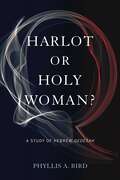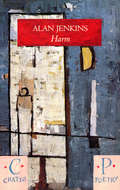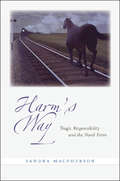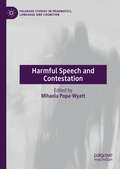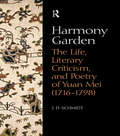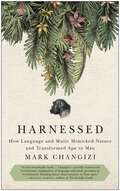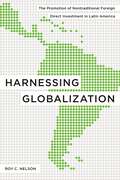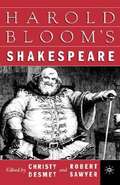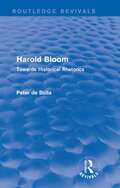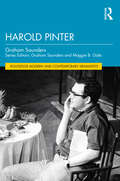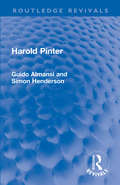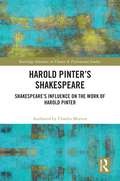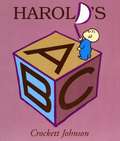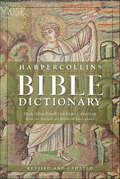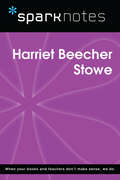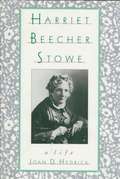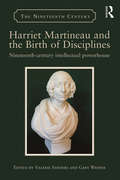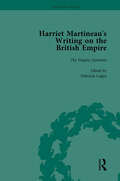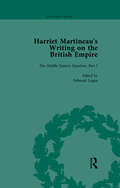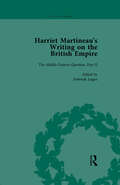- Table View
- List View
Harlot or Holy Woman?: A Study of Hebrew Qedešah
by Phyllis A. BirdHarlot or Holy Woman? presents an exhaustive study of qedešah, a Hebrew word meaning "consecrated woman" but rendered "prostitute" or "sacred prostitute" in Bible translations. Reexamining biblical and extrabiblical texts, Phyllis A. Bird questions how qedešah came to be associated with prostitution and offers an alternative explanation of the term, one that suggests a wider participation for women as religious specialists in Israel’s early cultic practice.Bird’s study reviews all the texts from classical antiquity cited as sources for an institution of "sacred prostitution," alongside a comprehensive analysis of the cuneiform texts from Mesopotamia containing the cognate qadištu and Ugaritic texts containing the masculine cognate qdš. Through these texts, Bird presents a portrait of women dedicated to a deity, engaged in a variety of activities from cultic ritual to wet-nursing, and sharing a common generic name with the qedešah of ancient Israel. In the final chapter she returns to biblical texts, reexamining them in light of the new evidence from the ancient Near East.Considering alternative models for constructing women’s religious roles in ancient Israel, this wholly original study offers new interpretations of key texts and raises questions about the nature of Israelite religion as practiced outside the royal cult and central sanctuary.
Harlot or Holy Woman?: A Study of Hebrew Qedešah
by Phyllis A. BirdHarlot or Holy Woman? presents an exhaustive study of qedešah, a Hebrew word meaning “consecrated woman” but rendered “prostitute” or “sacred prostitute” in Bible translations. Reexamining biblical and extrabiblical texts, Phyllis A. Bird questions how qedešah came to be associated with prostitution and offers an alternative explanation of the term, one that suggests a wider participation for women as religious specialists in Israel’s early cultic practice.Bird’s study reviews all the texts from classical antiquity cited as sources for an institution of “sacred prostitution,” alongside a comprehensive analysis of the cuneiform texts from Mesopotamia containing the cognate qadištu and Ugaritic texts containing the masculine cognate qdš. Through these texts, Bird presents a portrait of women dedicated to a deity, engaged in a variety of activities from cultic ritual to wet-nursing, and sharing a common generic name with the qedešah of ancient Israel. In the final chapter she returns to biblical texts, reexamining them in light of the new evidence from the ancient Near East.Considering alternative models for constructing women’s religious roles in ancient Israel, this wholly original study offers new interpretations of key texts and raises questions about the nature of Israelite religion as practiced outside the royal cult and central sanctuary.
Harm
by Alan JenkinsThe poems in this, Alan Jenkin's third collection, speak of the harm done and suffered - most frequently in the name of love - in the course of lives gone adrift among lost causes, chance meetings and missed chances. A new directness and simplicity, and throughout, a raw urgency of personal feeling, inform a voice that is as resourceful as in Jenkin's earlier volumes, and continues to salvage a 'fugitive lyricism' (as one reviewer put it) from harsh and dissonant realities. 'By turns jocular, disquieting, sexy and inventive'-PETER READING, SUNDAY TIMES 'Jenkins' poetry is exhilarating. . . It is charged with erotic energy, rage, sorrow and confusion'-TLS 'Stylish, Savage, unforgiving'-HUGO WILLIAMS, SUNDAY TELEGRAPH 'Jenkins has a restless mind: following his poetry gives his readers a rocky ride, but also a rewarding one. '-PETER PORTER, OBSERVER.
Harm's Way: Tragic Responsibility and the Novel Form
by Sandra MacphersonA field-defining study of the novel as a tragic form.Sandra Macpherson's groundbreaking study of the rise of the novel connects its form to developments in liability law across the seventeenth to nineteenth centuries. In particular, Macpherson argues for a connection to legal principles of strict liability that hold persons accountable for harms inflicted upon others in the absence of intention, consent, direct action, or foreknowledge. In convincing polemical readings of Defoe, Richardson, and Fielding, she shows that these laws share with the novel the view that the state of a person's mind is irrelevant to the question of her responsibility for her actions. Macpherson urges readers to rethink the ancient consensus that the novel differs from tragedy in its elevation of character over plot. She concludes that the realist novel is ultimately a tragic form, committed to holding persons accountable for accidents of fate. Macpherson's original insights continue to have a broad and lasting impact on the study of the novel.
Harmful Speech and Contestation (Palgrave Studies in Pragmatics, Language and Cognition)
by Mihaela Popa-WyattThis edited book explores how harmful speech works, how it can be used to change societies in bad ways and how we can defend against it. Harmful speech comes in a variety of forms, including hate speech, dehumanizing speech, misogynistic speech, derogatory speech, misgendering, marginalizing speech, and much more. What is common to all these types of speech is that they don’t just offend but seek to harm members of vulnerable groups, so that they feel humiliated, attacked, denigrated, silenced, and dehumanised. These harms are not confined to the conversation in which such speech is used, but may involve various downstream effects such as moral, social, and epistemic harms. Harmful speech may also shift social norms by changing people’s opinions and ultimately changing norms about how targets ought to be treated. Harmful speech uses this effect to establish and maintain oppressive norms, entrench hierarchies and shape power relations. The contributions in this volume examine the mechanisms underlying various forms of harmful speech and possible responses and remedies. They combine a variety of tools and perspectives, including philosophy of language, linguistics, ethnography, with a particular focus on issues in the semantics/pragmatics of derogatory expressions, speech acts and conversational dynamics. The chapters bring these conversations together and highlight the ways in which philosophers of language have sought to build bridges in recent years with social and political philosophy concerned with the nature of oppression and responses to it. These topics offer the opportunity for a valuable integration of insights from different perspectives.
Harmony Garden: The Life, Literary Criticism, and Poetry of Yuan Mei (1716-1798)
by J. D. SchmidtThis is the first complete study of China's most popular eighteenth-century poet in any Western language. The work consists of a detailed biography, a study of Yuan's revolutionary reinterpretation of Chinese literary theory, and an analysis of his many contributions to the more original genres of Qing-dynasty (1644-1911) poetry such as narrative, historical, didactic, eccentric, and nature verse. The study is concluded by a generous and representative sampling of Yuan's poetry in translation, the first to do justice to the wide variety and richness of his oeuvre. Although many shorter poems are selected, this is the first translation to include his outstanding longer poetry. Harmony Garden will completely revise current attitudes in the west concerning classical Chines literature during the eighteenth century, a period that was long viewed as one of decline, but now appears to equal the golden ages of antiquity.
Harnessed: How Language and Music Mimicked Nature and Transformed Ape to Man
by Mark ChangiziThe scientific consensus is that our ability to understand human speech has evolved over hundreds of thousands of years. After all, there are whole portions of the brain devoted to human speech. We learn to understand speech before we can even walk, and can seamlessly absorb enormous amounts of information simply by hearing it. Surely we evolved this capability over thousands of generations. Or did we? Portions of the human brain are also devoted to reading. Children learn to read at a very young age and can seamlessly absorb information even more quickly through reading than through hearing. We know that we didn't evolve to read because reading is only a few thousand years old. In Harnessed, cognitive scientist Mark Changizi demonstrates that human speech has been very specifically &“designed" to harness the sounds of nature, sounds we've evolved over millions of years to readily understand. Long before humans evolved, mammals have learned to interpret the sounds of nature to understand both threats and opportunities. Our speech—regardless of language—is very clearly based on the sounds of nature. Even more fascinating, Changizi shows that music itself is based on natural sounds. Music—seemingly one of the most human of inventions—is literally built on sounds and patterns of sound that have existed since the beginning of time. From Library Journal: "Many scientists believe that the human brain's capacity for language is innate, that the brain is actually "hard-wired" for this higher-level functionality. But theoretical neurobiologist Changizi (director of human cognition, 2AI Labs; The Vision Revolution) brilliantly challenges this view, claiming that language (and music) are neither innate nor instinctual to the brain but evolved culturally to take advantage of what the most ancient aspect of our brain does best: process the sounds of nature ... it will certainly intrigue evolutionary biologists, linguists, and cultural anthropologists and is strongly recommended for libraries that have Changizi's previous book." From Forbes: &“In his latest book, Harnessed, neuroscientist Mark Changizi manages to accomplish the extraordinary: he says something compellingly new about evolution.… Instead of tackling evolution from the usual position and become mired in the usual arguments, he focuses on one aspect of the larger story so central to who we are, it may very well overshadow all others except the origin of life itself: communication."
Harnessing Globalization: The Promotion of Nontraditional Foreign Direct Investment in Latin America
by Roy C. NelsonHow can countries in the underdeveloped world position themselves to take best advantage of the positive economic benefits of globalization? One avenue to success is the harnessing of foreign direct investment (FDI) in the “nontraditional” forms of the high-technology and service sectors, where an educated workforce is essential and the spillover effects to other sectors are potentially very beneficial. In this book, Roy Nelson compares efforts in three Latin American countries—Brazil, Chile, and Costa Rica—to attract nontraditional FDI and analyzes the reasons for their relative success or failure. As a further comparison, he uses the successes of FDI promotion in Ireland and Singapore to help refine the analysis. His study shows that two factors, in particular, are critical. First is the government’s autonomy from special interest groups, both domestic and foreign, arising from the level of political security enjoyed by government leaders. The second factor is the government’s ability to learn about prospective investors and the inducements that are most important to them—what he calls “transnational learning capacity.” Nelson draws lessons from his analysis for how governments might develop more effective strategies for attracting nontraditional FDI.
Harold Bell Wright: Storyteller to America (Great West and Indian Series, Vol #49)
by Lawrence V. Taggx
Harold Bloom's Shakespeare
by Robert J. Sawyer Christy DesmetEighteen essays from Desmet (U. of Georgia), Sawyer (East Tennessee State U.) and other scholars consider the sources and impact of Harold Bloom's Shakespearean criticism. The volume includes contributions from well known critics as well as younger writers. Topics include, for example, Bloom's promotion of a new secular humanism, his criticism of Shakespeare's characters, and his exploration of the playwright's place in literary geography. Annotation c. Book News, Inc., Portland, OR (booknews.com)
Harold Bloom: Towards Historical Rhetorics (Routledge Revivals)
by Peter De BollaSince the 1960s, the literary critic Harold Bloom has been producing some of the most powerful criticism in the United States. This large body of work has, since the publication of The Anxiety of Influence in 1973, increasingly distanced itself from all critical vogues, be they psychoanalytic, post-structuralist or new formalist, in favour of a highly idiosyncratic poetic theory. First published in 1988, this title was the first to engage with this unique approach in order to extend and amplify its most crucial insights about the nature of rhetoric, as it functions both in poetry and in poetic theory. The underlying argument is for a historical conception of rhetoric, for an extension of Bloom’s ‘diachronic rhetoric’ towards historical rhetoric.
Harold Pinter (Routledge Modern and Contemporary Dramatists)
by Graham SaundersHarold Pinter provides an up-to-date analysis and reappraisal concerning the work of one of the most studied and performed dramatists in the world. Drawing extensively from The Harold Pinter Archive at the British Library as well as reviews and other critical materials, this book offers new insights into previously established views about his work. The book also analyses and reappraises specific key historical and contemporary productions, including a selection of Pinter’s most significant screenplays. In particular, this volume seeks to assess Pinter’s critical reputation and legacy since his death in 2008. These include his position as a political writer and political activist – from disassociation and neutrality on the subject until relatively late in his career when his drama sought to explicitly address questions of political dissent and torture by totalitarian regimes. The book revisits some familiar territories such as Pinter’s place as a British absurdist and the role memory plays in his work, but it also sets out to explore new territories such as Pinter’s changing attitudes towards gender in the light of #MeToo and queer politics and how in particular a play such as The Caretaker (1960) through several key productions has brought the issues of race into sharper focus. Part of the Routledge Modern and Contemporary Dramatist series, Harold Pinter provides an essential and accessible guide to the dramatists’ work.
Harold Pinter (Routledge Revivals)
by Simon Henderson Guido AlmansiFirst published in 1983, Harold Pinter is an original study into the work of one of Britain’s foremost dramatists. The book celebrates Pinter’s elusiveness as a writer. It considers his position as a specifically contemporary writer of the post-modernist tradition, and explores his use of language as a sophisticated means of non-communication, acting as a smokescreen behind which his characters lie. The book presents the language games used by Pinter according to their strategic importance, beginning with his earlier works and suggesting a chronological progression. It also discusses Pinter’s later developments, such as the screenplay for The French Lieutenant’s Woman. Harold Pinter is ideal for anyone with an interest in the work and literary techniques of contemporary writers and dramatists.
Harold Pinter's Shakespeare: Shakespeare's Influence on the Work of Harold Pinter (Routledge Advances in Theatre & Performance Studies)
by Charles MortonThis book charts the impact of Shakespeare’s works on Harold Pinter’s career as a playwright. This exploration traces Shakespeare’s influence through Pinter’s pre-theatre writings (1950-1956), to his collaboration with Sir Peter Hall (starting properly at the RSC in 1962 and continuing until 1983), and a late, unpublished screenplay for an adaptation of The Tragedy of King Lear (2000). Adding to studies of playwrights such as Samuel Beckett and James Joyce as significant influences on Harold Pinter’s work, this study aims to highlight the significant and lasting impact that Shakespeare had both formatively and performatively on the playwright’s career. Through exploring this influence, Morton gains not only a greater understanding of the shaping of Pinter’s artistic outlook and how this affected his writing, but it also sheds light on the various forms of Shakespeare’s continued influence on new writing, and what can be gained from this. This study will be of great interest to students and scholars in theatre and performance studies.
Harold's ABC
by Crockett Johnson"Elevators take people up and down in big buildings, but Harold didn't like them. They made his stomach feel funny. He went up, over a hundred stories, in his own way. At the very top Harold was surprised to see something higher than he was." This is a thoroughly delightful alphabet book. It was only the next letter of the alphabet, flying from the roof. F is for Flag.
Harold's ABC
by Crockett JohnsonFrom the creator of the treasured children’s book Harold and the Purple Crayon, Crockett Johnson, comes another adventure for Harold and his magical purple crayon.Harold is going on an alphabet adventure from A to Z with his trusty purple crayon! This imaginative classic story is just right for little ones learning their ABCs. “A unique kind of ABC book.” (The Horn Book)
HarperCollins Bible Dictionary
by Mark Allan PowellThe HarperCollins Bible Dictionary, revised and updated edition, is the most complete, up-to-date, and accessible guide for the study of the Bible available today. With more than 4,000 lively, informative, and reader-friendly entries, this essential reference book provides all the information you need to understand the Bible.Whether you are a pastor, layperson, or a student of scripture, you will find every important name, place, and subject that makes Bible study come to life. From Aaron to Zurishaddai, here are all the people, events, and ideas of biblical times. This third edition continues in the rich tradition of its predecessors but has been thoroughly updated and revised by a new editorial team under the direction of the premier international scholarly body, the Society of Biblical Literature (SBL). More than half the articles in this book are new, and several dozen charts and tables have also been added as well as updates on recent archaeological discoveries.Over 200 contributors to the HarperCollins Bible Dictionary, from a diverse group of authorities, represent an ecumenical and non-biased viewpoint of scripture from different positions—Roman Catholic, Jewish, mainline Protestant, and evangelical. Filled with explanations of biblical beliefs, language, and insights into the culture and customs of the people who lived in biblical times, this resource will help anyone interested in scripture to more fully appreciate the meaning and message of the Bible.
Harriet Beecher Stowe (SparkNotes Biography Guide)
by SparkNotesHarriet Beecher Stowe (SparkNotes Biography Guide) Making the reading experience fun! SparkNotes Biography Guides examine the lives of historical luminaries, from Alexander the Great to Virginia Woolf. Each biography guide includes:An examination of the historical context in which the person lived A summary of the person&’s life and achievements A glossary of important terms, people, and events An in-depth look at the key epochs in the person&’s career Study questions and essay topics A review test Suggestions for further reading Whether you&’re a student of history or just a student cramming for a history exam, SparkNotes Biography guides are a reliable, thorough, and readable resource.
Harriet Beecher Stowe and the Beecher Preachers
by Jean FritzHarriet Beecher Stowe, a housewife with six children, opposed slavery with a passion. In 1852 her novel, Uncle Tom's Cabin, was published and Harriet became an instant celebrity.
Harriet Beecher Stowe: A Life
by Joan D. Hedrick"Up to this year I have always felt that I had no particular call to meddle with this subject....But I feel now that the time is come when even a woman or a child who can speak a word for freedom and humanity is bound to speak." Thus did Harriet Beecher Stowe announce her decision to begin work on what would become one of the most influential novels ever written. The subject she had hesitated to "meddle with" was slavery, and the novel, of course, was "Uncle Tom's Cabin." Still debated today for its portrayal of African Americans and its unresolved place in the literary canon, Stowe's best-known work was first published in weekly installments from June 5, 1851 to April 1, 1852. It caused such a stir in both the North and South, and even in Great Britain, that when Stowe met President Lincoln in 1862 he is said to have greeted her with the words, "So you are the little woman who wrote the book that created this great war!" In this landmark book, the first full-scale biography of Harriet Beecher Stowe in over fifty years, Joan D. Hedrick tells the absorbing story of this gifted, complex, and contradictory woman. <P><P> Pulitzer Prize Winner
Harriet Jacobs
by Jean Fagan YellinHarriet Jacobs's Incidents in the Life of a Slave Girl remains the most-read woman's slave narrative of all time. Jean Fagan Yellin recounts the experiences that shaped Incidents-the years Jacobs spent hiding in her grandmother's attic from her sexually abusive master-as well as illuminating the wider world into which Jacobs escaped. Yellin's groundbreaking scholarship restores a life whose sorrows and triumphs reflect the history of the nineteenth century, from slavery to the Civil War, to Reconstruction and beyond.
Harriet Martineau and the Birth of Disciplines: Nineteenth-century intellectual powerhouse (The Nineteenth Century Series)
by Valerie Sanders Gaby WeinerOne of the foremost writers of her time, Harriet Martineau established her reputation by writing a hugely successful series of fictional tales on political economy whose wide readership included the young Queen Victoria. She went on to write fiction and nonfiction; books, articles and pamphlets; popular travel books and more insightful analyses. Martineau wrote in the middle decades of the nineteenth century, at a time when new disciplines and areas of knowledge were being established. Bringing together scholars of literature, history, economics and sociology, this volume demonstrates the scope of Martineau's writing and its importance to nineteenth-century politics and culture. Reflecting Martineau's prodigious achievements, the essays explore her influence on the emerging fields of sociology, history, education, science, economics, childhood, the status of women, disability studies, journalism, travel writing, life writing and letter writing. As a woman contesting Victorian patriarchal relations, Martineau was controversial in her own lifetime and has still not received the recognition that is due her. This wide-ranging collection confirms her place as one of the leading intellectuals, cultural theorists and commentators of the nineteenth century.
Harriet Martineau's Writing on the British Empire, Vol 1: Electronic Edition (The\pickering Masters Ser.)
by Patrick Brantlinger Antoinette Burton Deborah Logan Kitty SklarThe literary presence of Harriet Martineau pervades 19th-century English and American culture. This edition makes her work available, and focuses on her writings on imperialism. It should be of interest to scholars of colonialism, women's writing, Victorian studies, sociology and journalism.
Harriet Martineau's Writing on the British Empire, Vol 2
by Patrick Brantlinger Antoinette Burton Deborah Logan Kitty SklarThe literary presence of Harriet Martineau pervades 19th-century English and American culture. This edition makes her work available, and focuses on her writings on imperialism. It should be of interest to scholars of colonialism, women's writing, Victorian studies, sociology and journalism.
Harriet Martineau's Writing on the British Empire, Vol 3
by Patrick Brantlinger Antoinette Burton Deborah Logan Kitty SklarThe literary presence of Harriet Martineau pervades 19th-century English and American culture. This edition makes her work available, and focuses on her writings on imperialism. It should be of interest to scholars of colonialism, women's writing, Victorian studies, sociology and journalism.
